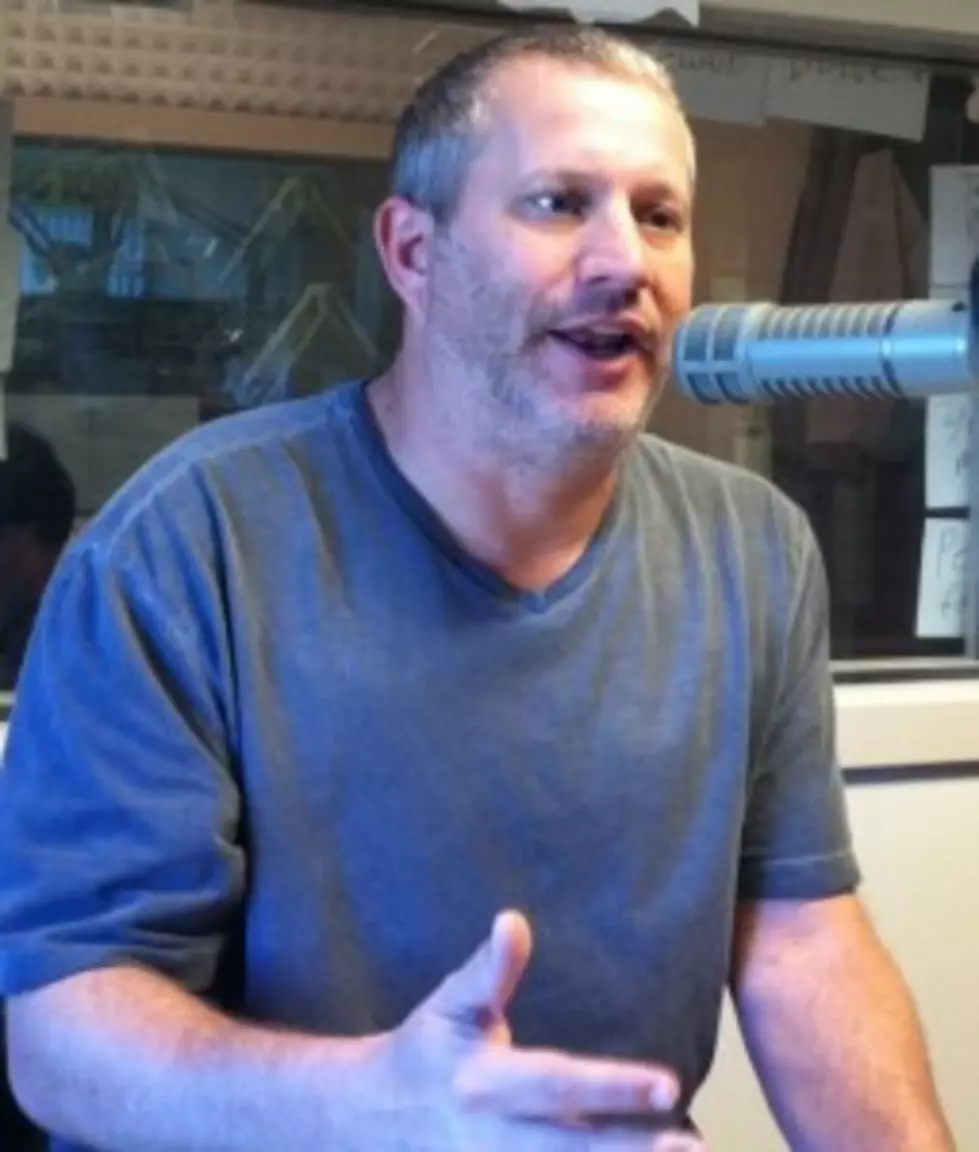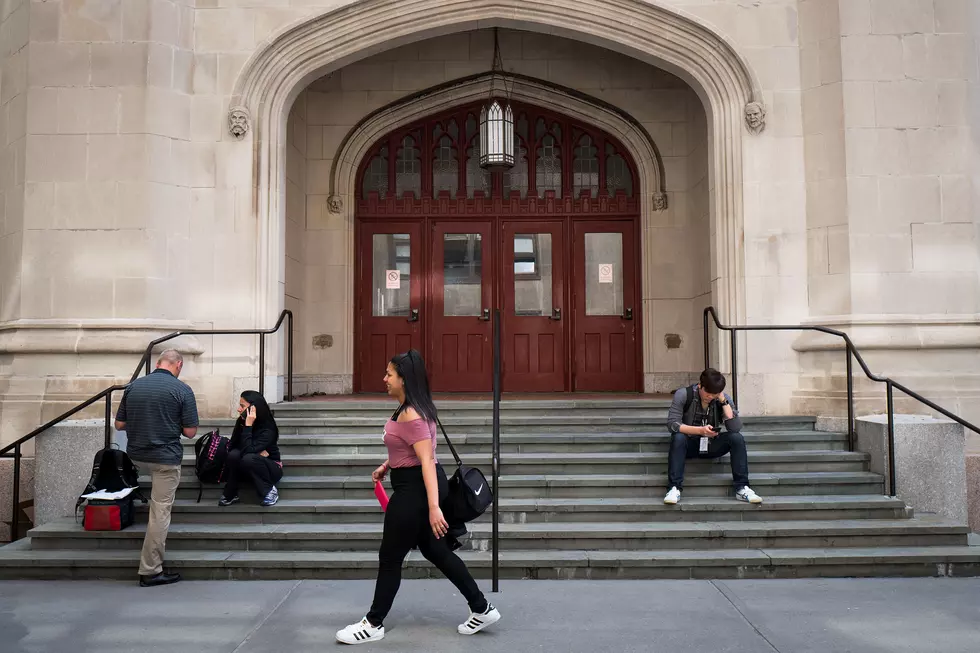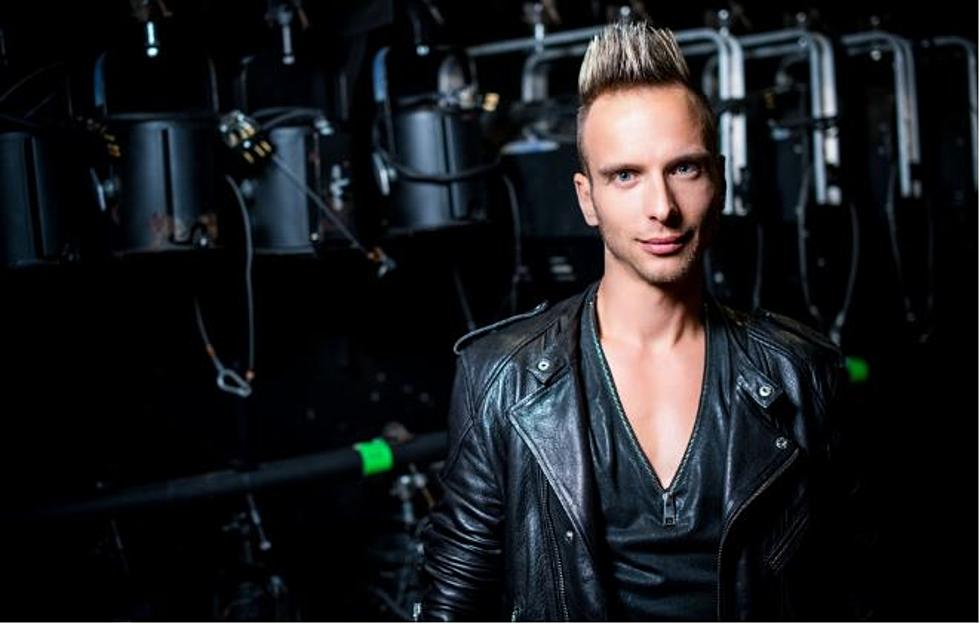
WIBX First News With Keeler In The Morning: Maths Expert Scott Flansburg, The Human Calculator, Says He Wants To Change The Way Students View Maths
Scott Flansburg, known internationally as "The Human Calculator," is trying to change the way children think about "maths."
The author and four-time Guinness World Record holder spoke with WIBX's Keeler in the Morning about his experiences and lofty plans for the future.
Segment One:
Keeler introduces the “Human Calculator,” Scott Flansburg. He is a Guinness World Record holder; he completed his fourth record last week.
Flansburg says that he was on the road overseas when the incident happened in Herkimer. He says, “God bless those families.” He is friends with Michael Renshaw and is so sorry for what they have all gone through. He says he was "glued" to Keeler during that time and it was a “freaky moment.” He thanked WIBX for the news coverage.
Keeler says for him Flansburg’s appearance is like showing off a new gadget where Flansburg is the gadget. He is the ambassador for the World Maths Day, part of UNICEF's World Education Games. They host a competition where five million students , “mathletes” compete online doing math exercises. He visits the winning schools all around the world and talks with them about “maths.”
He talks about the word “maths.” “Mathematics” is a plural word and Americans are lazy, dropping the “s.” When he appears overseas he is taken to task if he says the word “math.” He wants to change the way Americans feel about maths, and thus change the way they perform in maths.
He has worked with the White House. He went to West Canada Valley High School. He said his job is a dream come true, especially for someone who loves numbers. He met President Obama’s daughters’ school and got to visit Sasha and Malia. He has also visited Oprah Winfrey’s school in South Africa and several royalty schools overseas.
Monaski suggested that if Flansburg worked for the government it might not be in the mess it is in. Flansburg served in the Air Force for six years. He says he saw some things that were “very disturbing.”
He says “Congress can’t do math and that’s where the problem lies.” He wants to make a difference in America and with America’s education.
Keeler suggests that they do some exercises with Flansburg to “establish his credibility.”
Flansburg is presented with numbers to add, multiply, then divide. He says that he shows children how to do certain mathematical calculations within thirty seconds, enabling them to calculate the way he does. The WIBX First News team noted that he took less time to make the calculations than it did to perform the same tasks using a calculator.
He said he realised that he was onto something when he was in elementary school. He said if he read left-to-right then he should calculate left-to-right, despite the fact that he was taught to do the opposite.
He said he was at West Canada High School. His algebra teacher was Mr. Murphy. Flansburg’s friend, Andy McKay, brought his father’s calculator to school one day and before class they were playing around with the calculator when they discovered his talent when McKay mistakenly hit the “equals” sign on the calculator and Flansburg was able to guess the number. He then keep hitting the equals sign and Flansburg was able to make the calculation every time.
He says he gets to meet interesting children all around the world that are good at math. His niche is third through fifth grade because “ages eight to ten is where it all happens.” He said that if he can teach children that math is not bad he can help revolutionize education.
Keeler acknowledges that math is a major obstacle for many people and Flansburg’s approach may be very helpful to students.
Segment Two:
Flansburg says it’s great to be “home.” He is from Herkimer but makes his home in Arizona these days. He talks about the weather and about a new bridge that sits seven or eight hundred feet over the Hoover Dam.
Monaski says that he has worked in radio for eleven years and has never been so impressed with a guest. He tells Flansburg that he “smoked” the calculator, brought donuts, and showed off some amazing gadgets when he walked into the studio. The team acknowledges his solar-powered backpack that carries four hours’ worth of charge. Flansburg says the backpack, useful when travelling and unable for find plugs, still gets attention, especially at airports.
Flansburg says “technology is an amazing thing.” He adds that the technological advancements of the world give us no excuses for some of the maladies plaguing the world. He says we have “zero excuses” as to why a million children a year drop out of school. He says that we need to empower teachers and provide them with “coaches” to do the job that they love to do.
Maths, he says, is a huge subject. He says when maths are approached as numbers, not maths, it makes a world of difference. Numbers are practical, numbers are everywhere. The language of maths and science is “the most amazing language of the universe.” He says that we are erroneously taught that numbers are one through ten. He says that numbers are zero through nine. He says that we don’t count “zero” when we should. He says nine is the biggest digit and the secret to numbers is that every number higher than nine adds back down to nine (you will have to listen to the audio for Flansburg’s explanation; paraphrasing does not do it justice).
He says that that the number nine also has personal significance for him. He relates a story about golfing with Alice Cooper where they were discussing the number nine on September 9, 1999. Cooper mentioned that he wrote a song called “Eighteen” and asked Flansburg why every number added back up to nine. Flansburg started to explain and Cooper apparently replied that he did not really care all that much but Flansburg went back and figured things out on the drive home. This reporter admitted her own “weirdness” with the number nine and Flansburg said that indeed all numbers have a connection to nine.
He said using memory to do maths is the worst way to do it. He says, “If you get nine everything’s fine.” He said teaching every nine year old in America this, along with showing them to read numbers from left to right, it will revolutionize the relationship children have with numbers.
Before taking a break Keeler tells Flansburg that “seven plus four equals ‘double down,’” joking that he learned his math at the blackjack table.
Segment Three:
Keeler says “Flansburg has been all over the world in the name of maths.” Flansburg says he is also a human calendar and can tell anyone the day on which he or she was born if he is provided with the date.
He then demonstrates that he is able to make the calculation with callers. One caller, Bill, asks Flansburg who makes the best pancakes. Tom calls in to talk about how maths have changed and asked Flansburg what he thinks of the way maths are being taught. Flansburg says “new math” changed things so that no one knows what is going on but, he says, there is a simple solution. He is the spokesperson for a company called “Mathletics” which allows children to exercise maths skills online and they achieve an average of a twenty percent increase in grades in maths.
Flansburg was given the name “The Human Calculator” by former ABC morning show host Regis Philbin, on whose show he appeared in 1989. That was the first of many appearances on television shows.
He says he is trying to make it so that it is “cool to be good at math.” He talks about creating a human Paschal triangle for another Guinness World Record.
83-Year old caller Sam called in and said Flansburg’s skills were incredible.
Keeler says that schools in the area can call in to take advantage of a free assembly that Flansburg is offering on May 17, 2013.
Segment Four:
Keeler reintroduces Flansburg.
Flansburg is on a History Channel show called “Stan Lee’s Superhumans.” On it they take him to a hospital where they analyse his brain activity and identify that “area 44” of his brain is five times the normal size. Flansburg says he thinks it is the nine thing that exercises that part of his brain. He says he has a God-given talent for numbers. The Guinness people, he says, actually thought that he was cheating when he was counting by 38. He said that they gave him the record but one of the judges said that they thought that he had memorized the numbers. He then proved it to them by performing the same task using random three-digit numbers.
Caller Dave calls in and says he thought, when he was younger, that he would be successful if he just “hit the books.” He wanted to be an astronaut. He says in anticipation of that he became a math whiz until he hit trigonometry and he could not memorize long lists of numbers, and other things - like the equations for lines measuring the arcs of circles - that did not make sense to him. After a teacher told him that he had to drop out of his class or he would be failed. He promptly became a language major. Flansburg says that epitomizes the attitude surrounding maths, and says that so many young people are unnecessarily turned away from maths, and about half of the jobs available in society, because it is presented in an intimidating way.
Caller Martin asks if someone’s birthday, changed by something like an induced labour, would have any effect on their life. Flansburg says he does not believe that there is any statistical data to prove that it does, and he does not believe that it does, but he will look into it.
Monaski then demonstrates his newly-discovered understanding of the concept of nine. Flansburg issues a challenge to parents to use everyday examples, like street signs, to practice the nines concept. He says that the game of baseball provides many examples of it.
Frank, the final caller, reminds the team that there was once a time when numbers like a trillion were inconceivable.
For more information on Flansburg, or to contact him at: www.thehumancalculator.com.
Flansburg recently wrote a colouring book and study guide entitled "Turn on The Human Calculator in You."
More From WIBX 950









